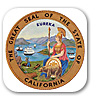And now I get to try and play catch-up after spending so much time with the back-end issues that have to be ironed out to start a podcast. To many visitors, this may be old news, but I'd like to note significant cases from the last month so they are here for reference. I've faced down the issue of whether agency principles apply in UCL and FAC cases. In People v. JTH Tax, Inc. (January 17, 2013), the Court of Appeal (First Appellate District, Division Two) tackled that exact issue. Of primary significance as far as I am concerned is the fact that the Court criticized two cases commonly cited by defendants on this issue, People v. Toomey, 157 Cal.App.3d 1 (1985) and Emery v. Visa Internat. Service Assn., 95 Cal. App. 4th 952 (2002).
The background is complex, but a brief summary puts the discussion in context. Liberty provides certain tax preparation and related loan services throughout the United States. Liberty had more than 2,000 franchised and company-owned stores throughout the United States. Liberty offered tax preparation services, e-filing, “refund anticipation loans” (RAL) and “electronic refund checks” (ERC). The Attorney General filed a complaint against Liberty, alleging that Liberty had violated the UCL and the FAL. The lawsuit claimed there were misleading or deceptive statements in print and television advertising by Liberty and its franchisees regarding Liberty's RAL's and ERC's and inadequate disclosures to customers in Liberty's RAL and ERC applications regarding debt collection, certain costs and interest on the extension of credit, the time it takes to receive money under refund options offered, and other matters. The remedies the People sought included injunctive relief, civil penalties, and an order of restitution.
When the Court turned to the legal issue of agency liability for UCL and FAL violations, the Court said:
Also, as the People point out, our Supreme Court has held, without the limitations urged by Liberty in the present case, that “section 17500 [the FAL] incorporates the concept of principal-agent liability.” (Ford Dealers Assn. v. Department of Motor Vehicles (1982) 32 Cal.3d 347, 361 ( Ford Dealers ).) Since violations of the UCL “include any . . . unfair, deceptive, untrue or misleading advertising and any act prohibited by [the FAL]” (§ 17200), Ford Dealers establishes that persons can be found liable for misleading advertising and unfair business practices under normal agency theory. To the extent that Toomey, supra, 157 Cal.App.3d 1, or Emery, supra, 95 Cal.App.4th 952 hold otherwise, which defendant implies without stating outright in the course of arguing its limiting theories, these cases are mistaken.
It is clear that, as the trial court recognized, we must be mindful that we are applying agency theory in the context of the franchisor-franchisee relationship. A franchisee, by definition, operates a business “under a marketing plan or system prescribed in substantial part by a franchisor,” which operation “is substantially associated with the franchisor's trademark, service mark, trade name, logotype, advertising or other commercial symbol designating the franchisor . . . .” (Corp. Code, § 31005, subd. (a)(1), (2).) Accordingly, “the franchisor's interest in the reputation of its entire [marketing] system allows it to exercise certain controls over the enterprise without running the risk of transforming its independent contractor franchise into an agent.” (Cislaw , supra, 4 Cal.App.4th at p. 1292, quoted in Kaplan, supra, 59 Cal.App.4th at p. 745.) Thus, a franchisor may exercise a right of control over such activities as advertising to protect its marks and goodwill.
However, it is equally clear that the franchisor's unique interests do not eliminate or alter the application of agency theory if the franchisor exercises a right of control that goes beyond its interests in its marks and goodwill. It is a question of fact as to whether, as the court considered in Cislaw, the franchisor retains " 'the right to control the means and manner in which the result is achieved' " and exercises "complete or substantial control over the franchisee." ( Cislaw, supra, 4 Cal.App.4th at p. 1288.) This is precisely the standard applied by the trial court. Therefore, Liberty's argument that the court applied the wrong legal standard to determine that it was liable for its franchisees' misleading advertising lacks merit.
Slip op., at 24-25. The opinion, overall, is massive, since much of the discussion focuses on the factual record in the trial court. The legal discussion of principle-agent liability for UCL and FAL violations is sure to work its way into civil litigation.












